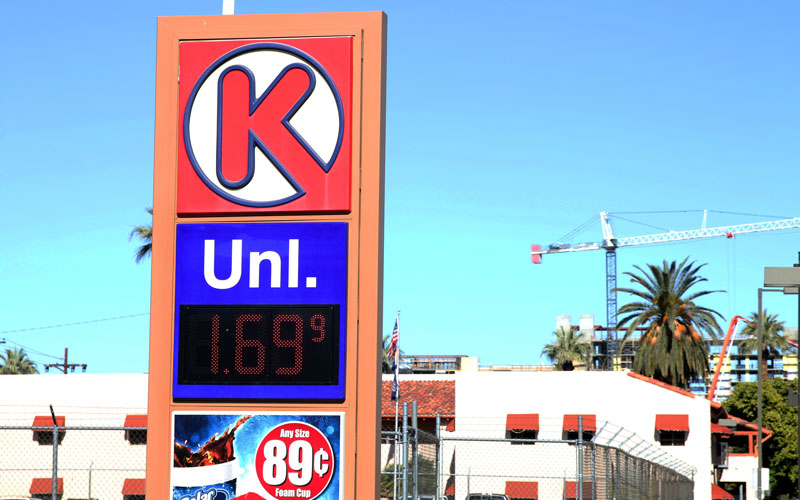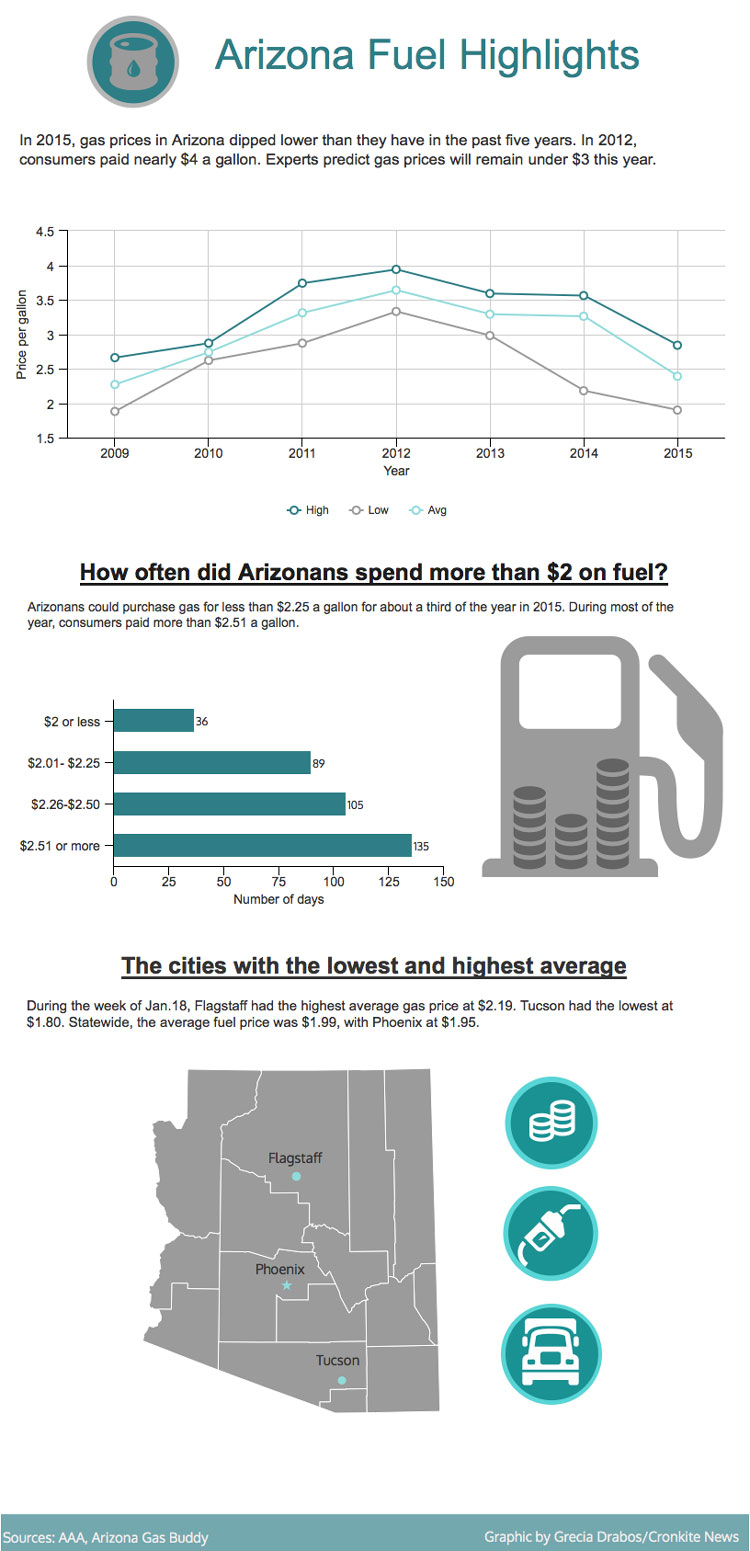
A Circle K store in downtown Phoenix sells gas for $1.69 per gallon. (Photo by Ziyi Zeng/Cronkite News)
U.S. oil prices dropped to $27 a barrel last week – the lowest point since September 2003.
Consumers may have rejoiced, but Wall Street did not.
Prices improved slightly this week, and one local economist said prices will likely remain low.
Dennis Hoffman, director of the L. William Seidman Research Institute at the W.P. Carey School of Business at Arizona State University, said fundamental dynamics in the oil industry as well as the business environment have changed.
States that mainly consume energy, like Arizona, will likely prosper, the professor said.
“It’s good news at the pump for Arizona gasoline purchasers,” he said. “That leaves dollars in their pockets to buy other things.”
One of the factors driving down the prices is the increasingly efficient and refined “fracking” techniques adopted in the U.S. that has caused the oil supply to surge dramatically in North America, Hoffman said.
“(The amount of oil) increased so much that we are at the verge of being an oil exporting nation, which of course, would be unthinkable when I flash back to the ‘70s,” Hoffman said.
He added that the low prices will negatively affect oil-producing states like Texas, North Dakota, Oklahoma, Colorado and Montana.
He also suggested that China’s slowed economic growth and the U.S. lifting sanctions on Iran also play major roles in the falling of oil prices.
“So you have a ton of supply that’s come on, coupled with not really much increase in demand – kind of lackluster demand – that’s a recipe for declining oil prices,” he said.
